International Volunteer Niki Harris : First Impressions in Huancayo
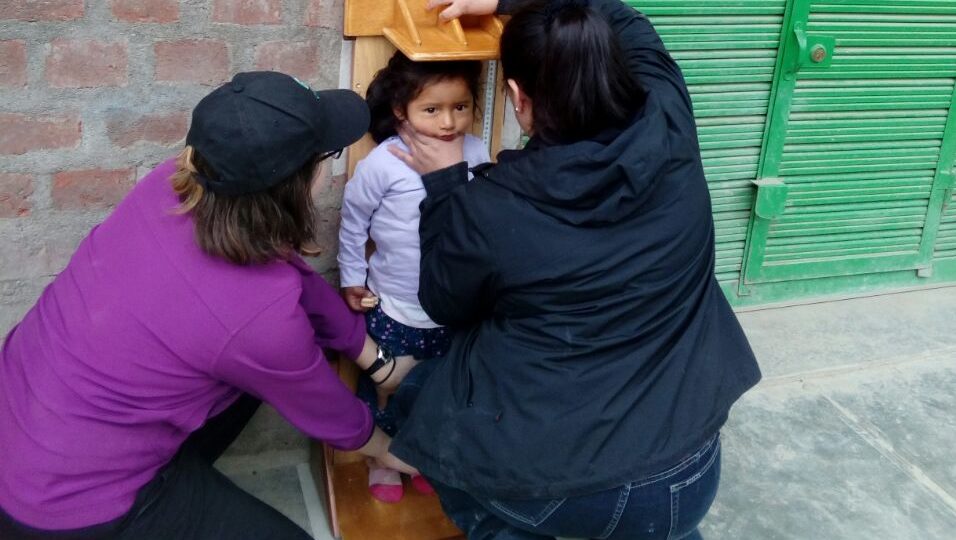
Niki Harris is a registered nurse from Boise, Idaho. Ever since she was a young girl, her parents encouraged her and her sister to volunteer their time in the service of others. We are lucky to have her join our team of international volunteers. Niki is currently serving in Huancayo and Trujillo in Peru and she shares this post about her experience so far.
It is hard to believe that I have now been in Peru and at my placement site for close to three weeks. What a beautiful country and kind people! I am serving in the city of Huancayo, or as locals know it, Hyo. Huancayo is a city of close to 500,000 people located in the Mantaro Valley in the heart of the Peruvian Andes at 10,700 feet elevation. It is a city of much culture and pride, inhabited by the Huanca people and home to more than 4,000 different types of potato (papa).
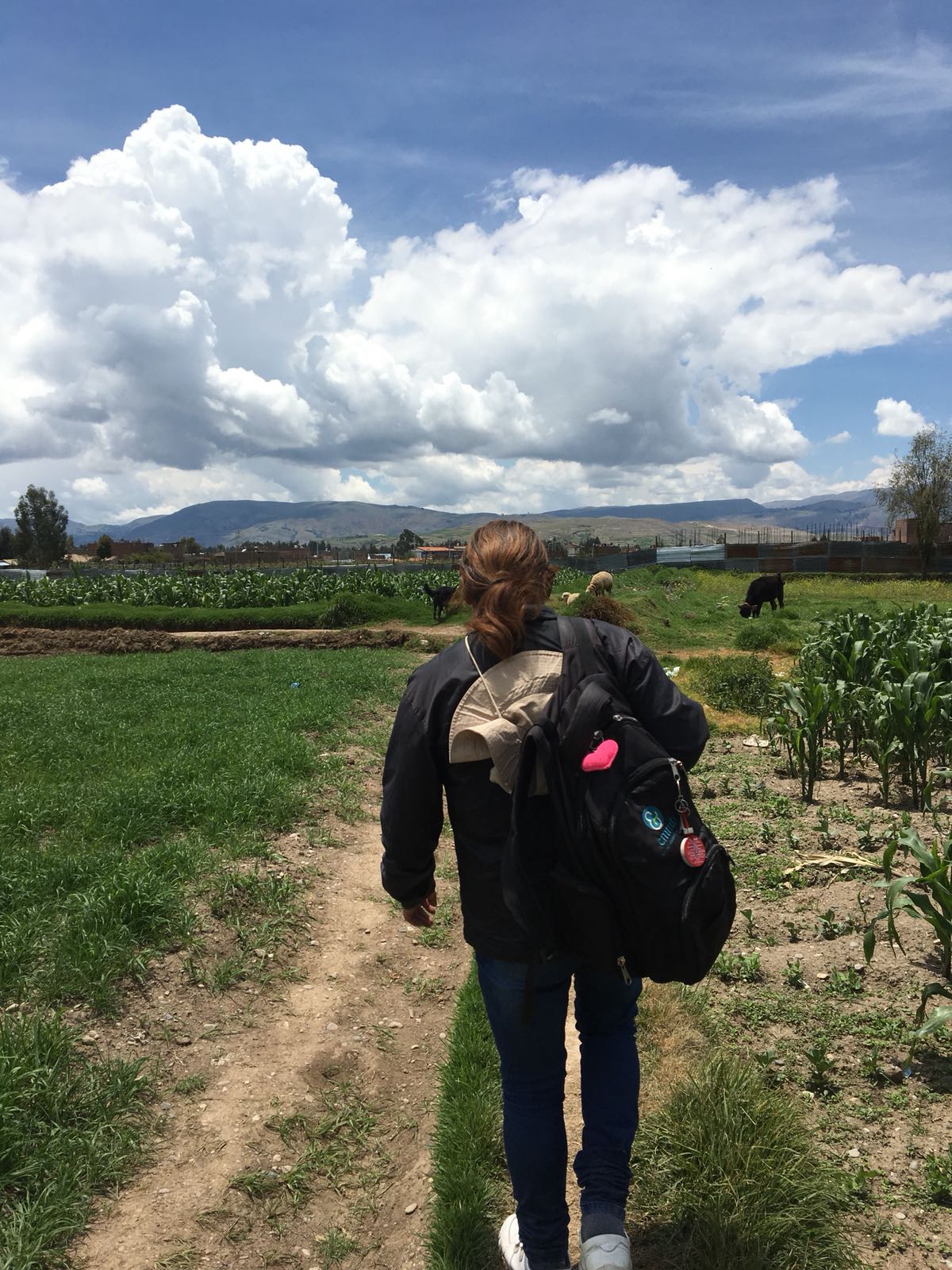
Niki walking to see patients in the countryside of Huancayo
While Huancayo is one of the larger cities in Peru, there are many areas on the outskirts of the city that have not yet benefited from the infrastructure at the heart of the centro (downtown). Many families lack access to safe water, garbage disposal, and sewage connection. Many roads are unpaved, and wild dogs wander the muddy streets. As you can imagine, all of these factors affect the health of the families for whom CMMB cares for in the city.
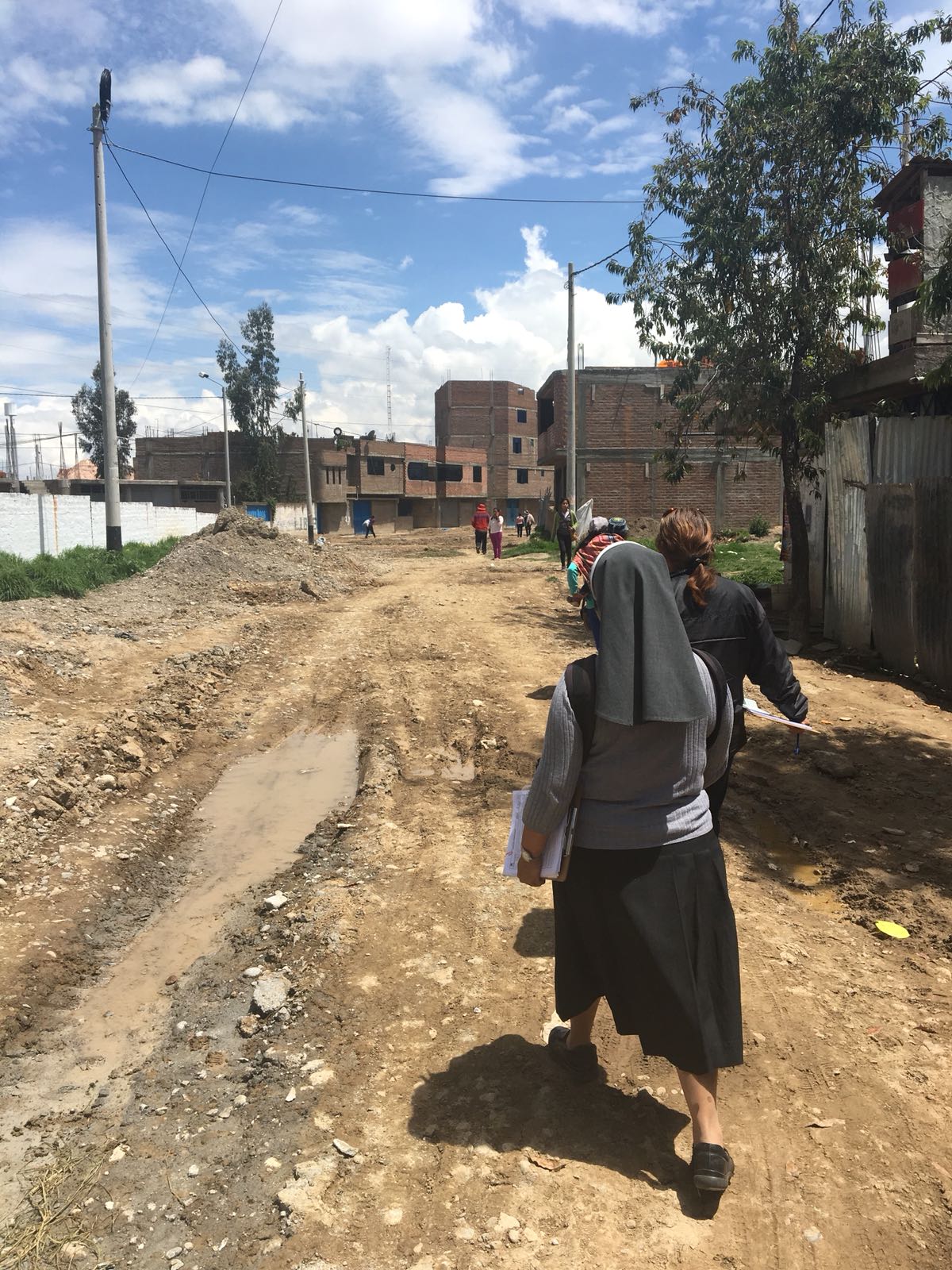
Nurse Gladys and Sister Elena in the field in Huancayo, Peru.
Proper hand-washing and waste disposal are key to ensuring the women, children, and families in the area avoid parasites and other bacteria lurking in the neighborhood. Lack of safe water and waste disposal connection present challenges that many in the U.S. are fortunate not to have to think about on a day to day or even minute to minute basis. How can I prepare a healthy meal for my children? What water will I use to cook? What water will I use to help my children bathe? These are some of the questions that run through the minds of mothers living in Huancayo.
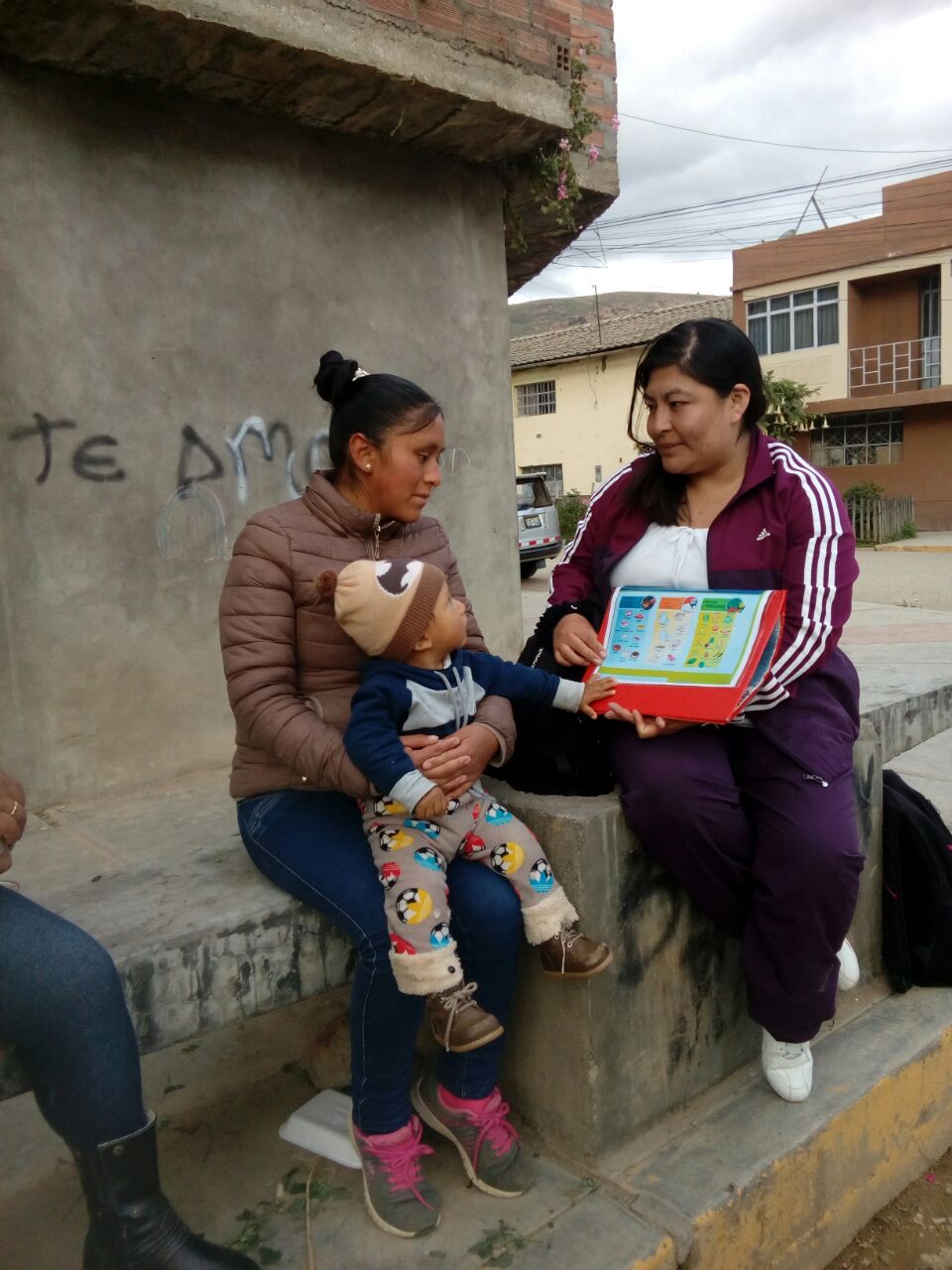
Nurse Maritza teaching a mother about how to avoid anemia by feeding her baby the right foods
CMMB nurses and community health workers (promotoras as they are called in Peru) work hard day in and day out to counter some of these challenges and to provide education, inspiration, and assistance. What a team of wonderful, dedicated, and intelligent nurses and community health workers! I have been fortunate to join in the Mil Dias program, focused on working with women and children under the age of two to promote healthy growth and development. Unfortunately, many of the women and children in this community suffer from anemia and malnutrition. This is where CMMB steps in, providing education, direct anemia testing and iron supplementation, and overall community support.
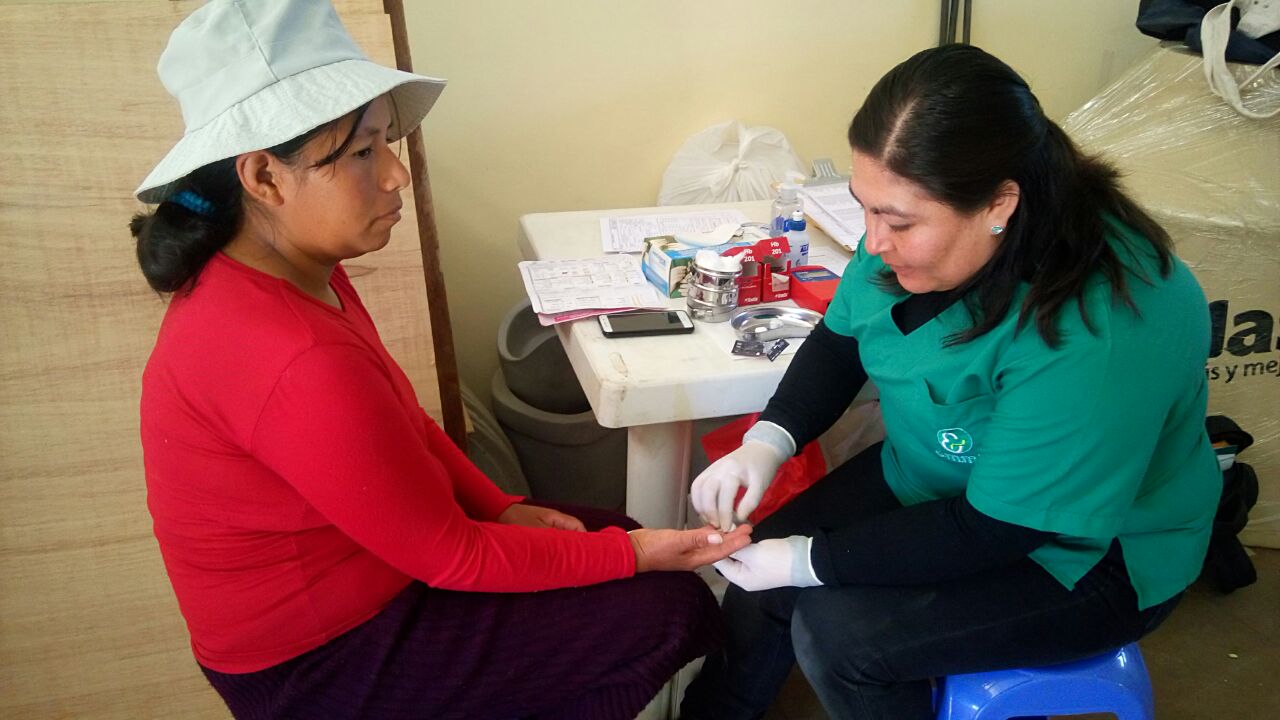
Nurse Maritza checking hemoglobin levels for a pregnant mother in Huancayo in a pop-up quarterly clinic
Many things have struck me about the country, culture, and work, but two things specifically have struck me about CMMB’s presence in Huancayo: One is that CMMB has chosen to work with talented community health workers, community members who live in the areas in which they serve. I have been struck day in and day out by how hard these promotoras work and how much they care for their neighbors. They are often mothers or fathers themselves, you see them carrying their children home to home to help educate other mothers or future moms to be, and they do so with such pride. From what I’ve witnessed, the community health workers help develop a level of trust with the women and children served that might not otherwise be possible. It allows CMMB staff to enter in to the home and get a full assessment of the environment, something impossible to see at a clinic visit. The promotoras also help develop community empowerment and strength by existing as leaders and pillars of knowledge, close to home.
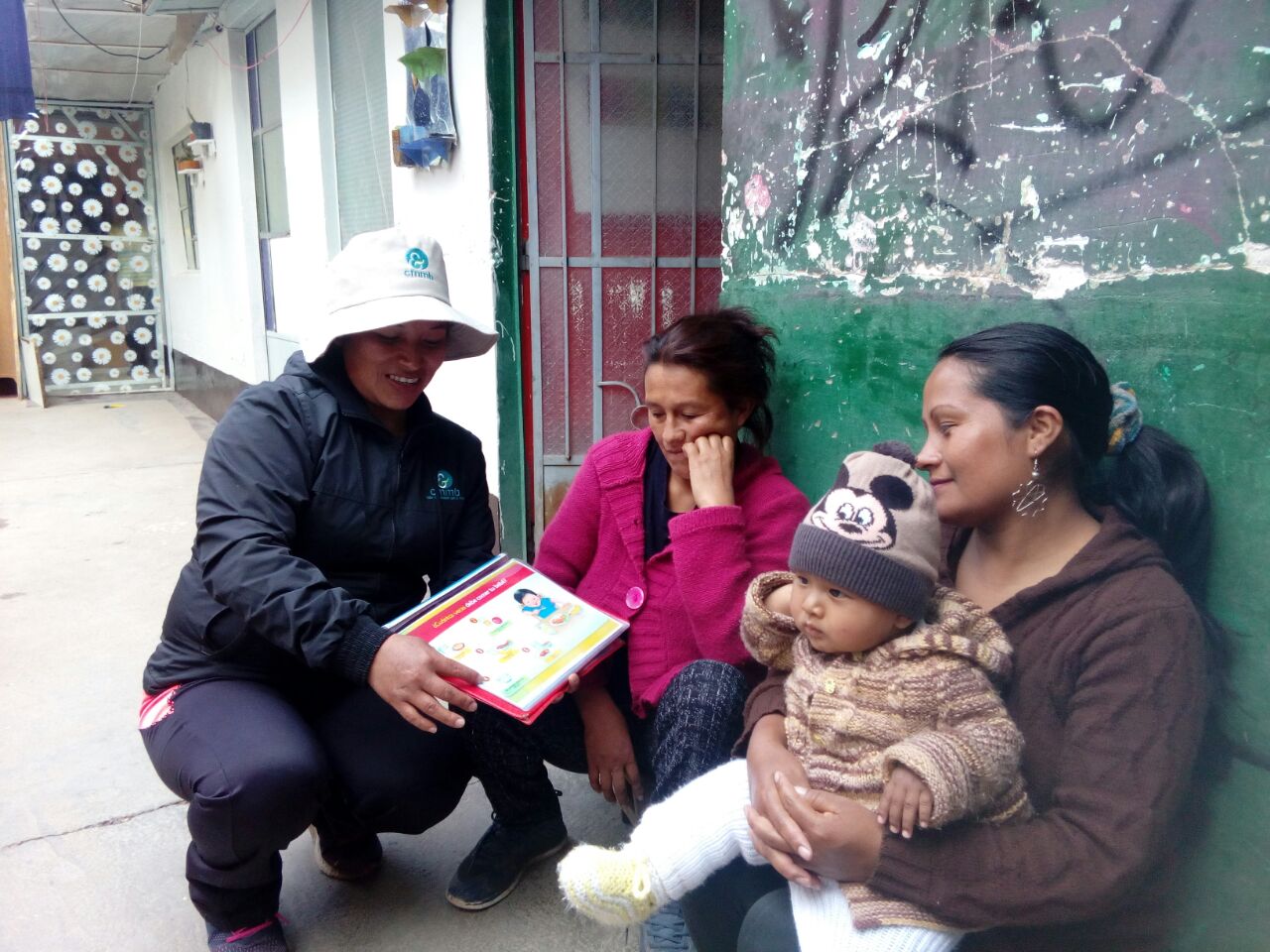
Community health worker, Elizabeth working hard and teaching two mothers about how iron deficiency affects overall well-being.
The second thing that has struck me about the work of CMMB is how dedicated all workers are on promoting the dignity of every human life. Promotoras and nurses listen specifically, actively, and with a caring ear to each mother they encounter. It is not only about getting a child’s weight or understanding what their level of anemia might be, but truly understanding more about the family and letting the women and children guide the education and support provided. Each woman and child is referred to by name and given attention when and where it is needed. These workers are a true testament to the mission of the organization!
I look forward to sharing more about this great experience! Please stay tuned.